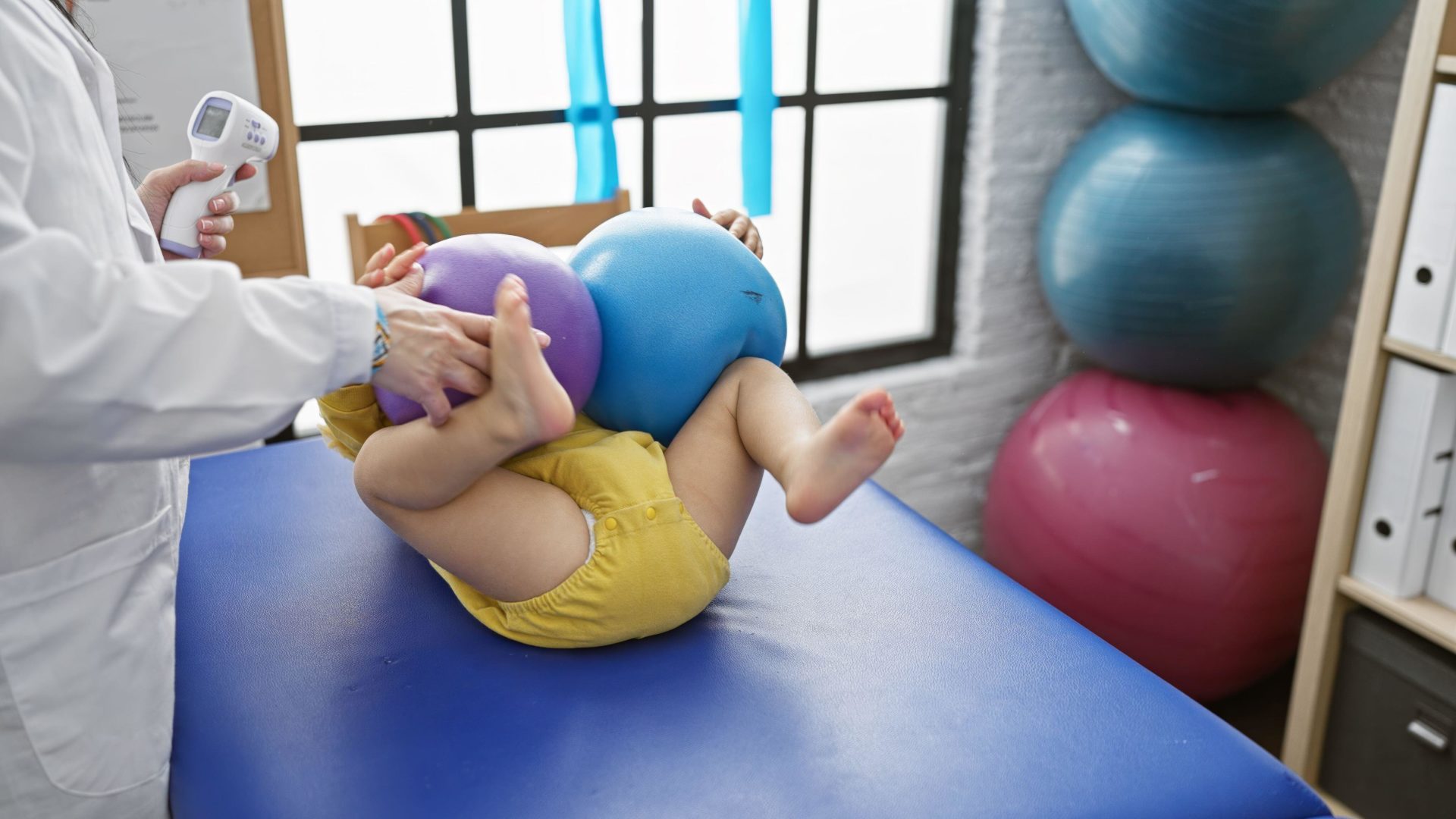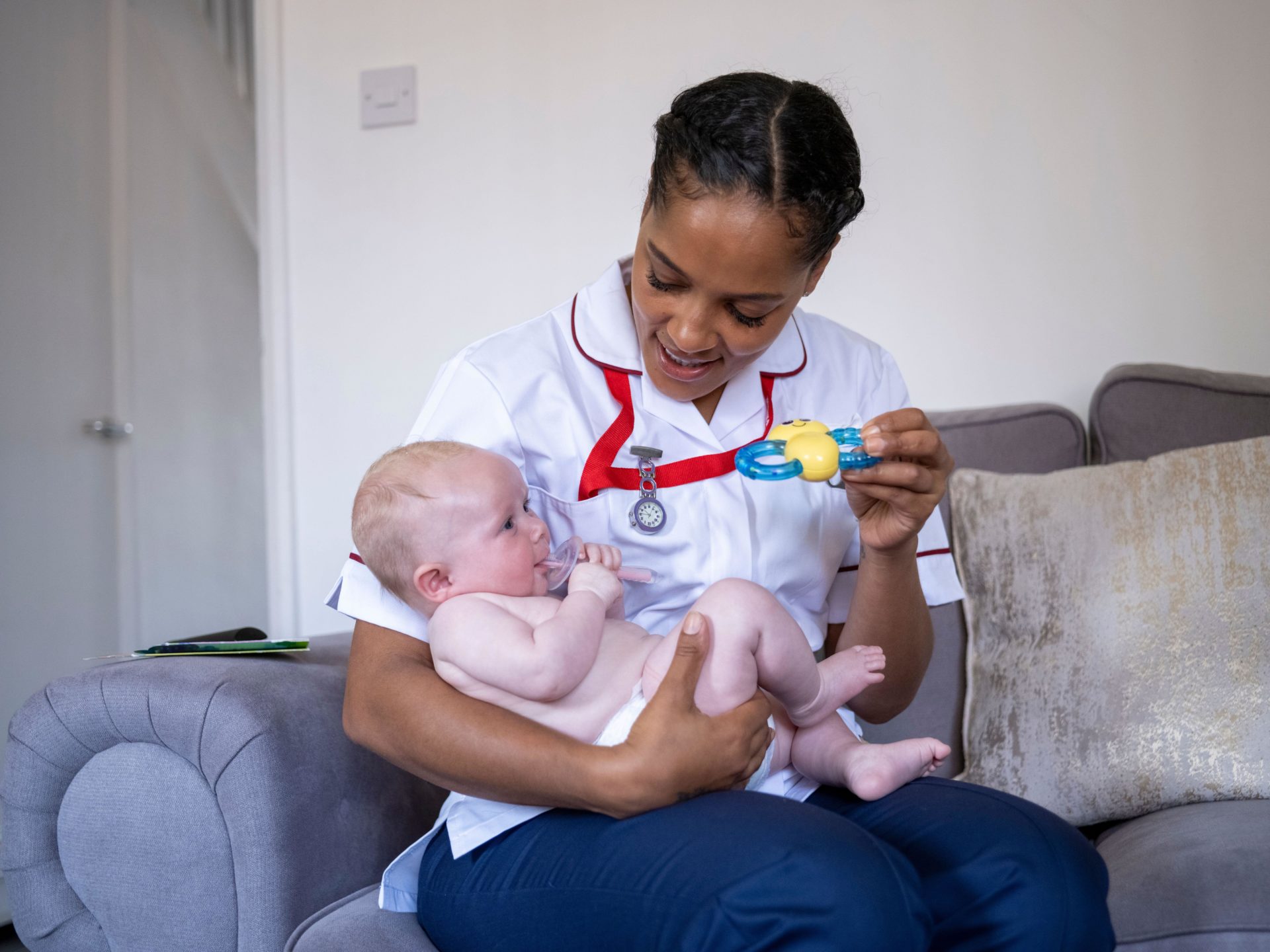Thousands of children are missing out on crucial developmental checkups due to a shortage of public health nurses.
New figures released to Newstalk reveal that at least 7,000 children across the country did not receive the crucial 9 – 11 month development assessment from the HSE last year.
Meanwhile, the HSE has confirmed that it does not currently track the number of children who are receiving four other key early-years assessments at a national level – meaning the health service cannot say how many children did or did not receive them.
In Ireland, every child is entitled to a range of free health and development checkups from just after they are born until the age of five.
The assessments are carried out in the community by Public Health Nurses and are administered at three months old, between nine and 11 months and at the ages of two and four.
They also receive a hearing and eyesight test in Junior Infants.
The new figures, released to Newstalk under the Freedom of Information Act, show that nearly 15% of children who were due to attend the crucial 9 – 11 month development assessment last year did not get an appointment – at least 7,000 children in total.
The figures also reveal that parents are facing something of a ‘location lottery,’ with some areas of the country returning far lower check rates than others.
Over 3,400 children did not receive the check in Dublin alone last year – and the situation is particularly bad in Dublin West where nearly two-thirds of children (just over 1,000) missed out.
The HSE has also confirmed there are similar issues in pockets of Kerry, North Cork, Wexford, Cavan/Monaghan and Sligo/Leitrim.
 A paediatrician checks a baby's flexibility with colourful balls at a physiotherapy centre. Image: Aaron Amat/Alamy
A paediatrician checks a baby's flexibility with colourful balls at a physiotherapy centre. Image: Aaron Amat/AlamyOn The Pat Kenny Show this morning, reporter Stephanie Rohan spoke to Lucan mother Siobhán Uí Cheallaigh who said she was told her daughter would not be offered any further checks after her initial three-month assessment.
When she inquired about bringing her daughter in for her 9 – 11 month check, she was told that staff shortages meant the service in her area was only offering the assessments in cases of complex needs.
“The public health nurse said, ‘Oh sorry, did I not say that at the last check-up? That that's it?’” she said. “‘There are no more checkups for your baby due to recruitment issues.’”
“So, if someone is out on leave and they don't get replaced, they just don't have the required numbers.”
Ms Uí Cheallaigh said she was left to ask family members and other mothers in the area for advice on her daughter’s development.
“You just don't know what to be looking out for, and it's not fair - for my daughter or for any other child in Dublin Midwest - that they're not getting the same check-ins as other children across the country,” she said.
"We just don't have the staff"
Also on the show, Crumlin mother Remy Raitt said the only assessment her son received was at three months – and she only got that by sitting in a waiting room until someone eventually saw her.
“The public health nurse I did see at three months was lovely,” she said. “She was brilliant at what she did and she really did apologise. She was like, ‘We just don't have the staff.’”
“I've got a friend - and this is obviously not the way you should be doing it - who sent me some checklists from the UK and she was kind of like, ‘just make sure he's doing this and doing that’.
“But you know, there are professionals doing this for a reason, you know? These tests should be done by a professional.”
"Critical period"
Stephanie also spoke to Consultant Neonatologist Paediatrician Dr Pamela O’Connor, who said it is essential for development checks to be carried out early in a child’s life.
“The brain really is not developed fully at birth and in fact, it's not fully developed until after the first two years of life,” she said.
“So, this is a critical period for a child, for a baby, in developing and understanding their surroundings and in coping with living and interacting.”
Dr O’Connor said Public Health Nurses provide an “invaluable service” for parents and children.
“They pick up things like babies that are failing to thrive or not absorbing their milk properly or not able to feed properly,” she said.
“They could have a neurological condition or, indeed, they could have a condition related to their motor development.
“You can also pick up a mom who's suffering from post-natal depression, who's really struggling and needs help, and I suppose her illness will affect the baby often, and bonding is affected.”
Child Development Checks
The HSE figures show that around 70,000 children missed the 9–11 month Public Health Nurse (PHN) developmental check between 2020–2024.
Those figures are impacted by the COVID-19 pandemic when the check rates fell as low as 52% nationally – although the pandemic also saw certain areas failing to return complete data, making it hard to provide exact figures on how many children received the checks.
In a statement, the HSE said it is facing difficulties recruiting and retaining public health nurses in the Dublin area, particularly in Dublin West.
It said it “continues to prioritise and support patients who have the greatest need” in areas impacted by the staff shortages.
 A nurse playing with a baby girl. Image: Alamy
A nurse playing with a baby girl. Image: AlamySpeaking to Stephanie at Donnybrook Primary Care Centre in Clonskeagh, Dublin South East Director of Public Health Nursing Maeve Smyth said there is “absolutely no doubt that staffing is a challenge,” especially in urban areas where there are cost-of-living and housing challenges.
“Attracting staff to stay and spend time in our services is difficult because of the affordability of rent and mortgages and getting housing,” she said.
“We hire actively […] we had a 100% increase in applications for the public nursing course this year.
“So, we're really hopeful that we'll see a trajectory of improvement in staffing, particularly for those areas that were hit hard with staffing.”
The HSE said it is taking steps to encourage more people to train as public health nurses, adding that its sponsorship scheme has seen a 10% increase in uptake this year.
It urged any parent who has concerns about their child’s development to contact their GP or local Public Health Nursing service.









